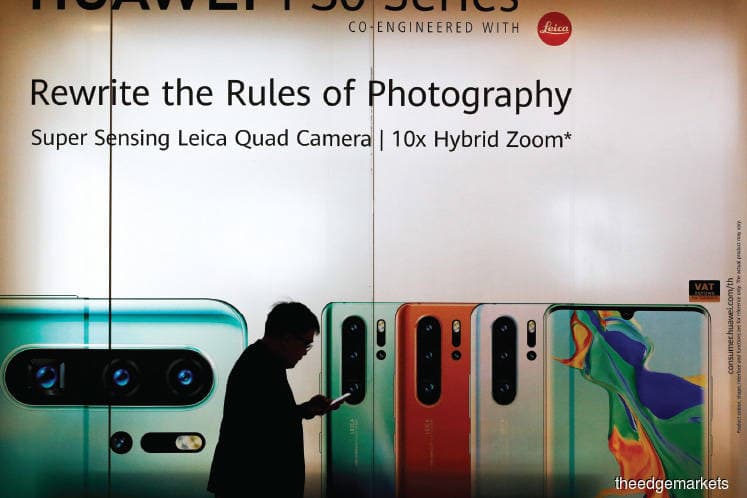
This article first appeared in The Edge Financial Daily on May 27, 2019
KUALA LUMPUR: Malaysia’s technology counters staged a slight rebound last Friday, but analysts are not optimistic the uptrend would last amid continued uncertainty over the US-China trade war.
The Bursa Malaysia Technology Index rebounded 1.04% to 30.14 last Friday, after four consecutive days of falls in the wake of the move by several leading US technology companies to cut ties with Huawei.
Hong Leong Investment Bank Bhd analyst Tan J Young said despite the slight rebound it is still not the right time for bargain hunting.
“I don’t think it is time yet [to accumulate tech stocks]. I’d rather be late. [It is important to] get the timing right,” he told The Edge Financial Daily when contacted.
“Although Huawei has stated they do not need US technology, they have yet to prove how they are going to do so. Till now, we think without US technology, Huawei will have difficulty selling not only their smartphones, but also their telecommunication infrastructures.
“Yes, demand for smartphones will likely sustain and demand is likely to flow to Apple or Samsung. iPhone’s price points are high, so it’s unlikely to capture all the demand. Samsung [on the other hand] is likely to win most of the market share from Huawei. However, Samsung’s supply chain is widely known to be kept within South Korea and hardly benefits others, including Malaysian tech firms,” he noted.
Thus, Tan said the Sino-US trade tensions have created more doubts in the already dull global semiconductor sales and capital spending projections. “We reiterate our cautious stance in the absence of near-term catalyst,” he said.
Phillip Capital Management Sdn Bhd chief investment officer Ang Kok Heng agrees that semiconductor industry players could face a short-term setback due to the trade war.
“Production volume [for semiconductors] would see a temporary setback, even for a company like Huawei. If they can get an alternative supplier, it would take some time for them to ramp up production again,” he noted. Regardless, Ang said demand for semiconductor is unlikely to be affected.
“Every year, there will be new technology products, and people are still buying, as they demand for better features and function from their devices. It is like opium, once they take it, they never stop.
“So the tech cycle is a very long cycle. [Meanwhile], the Huawei issue will force China to accelerate their development in technology in order to catch up,” he said.
Bank Negara Malaysia’s latest available data shows the country’s semiconductors export for February grew 6.14% year-on-year to RM14.5 billion, from RM13.66 billion. In January, it grew 7.2% y-o-y to RM20.82 billion from RM19.33 billion. In 2018, total semiconductor exports rose 23.65% y-o-y to RM220.28 billion from RM178.47 billion.
A bank-backed analyst, who declined to be named, also think the tech counters’ performance last Friday is not likely to be sustained.
“At this point, there’re still a lot of uncertainties. Guidance from their management is not positive as well, and it looks like the traditional recovery [of semiconductor orders] in the second half of the year may not pan out as expected,” he said, adding that BNM’s data shows Malaysia has consistently recorded higher semiconductor exports since 2012.